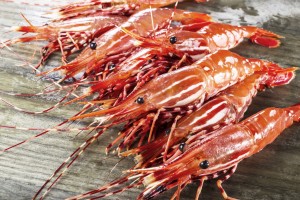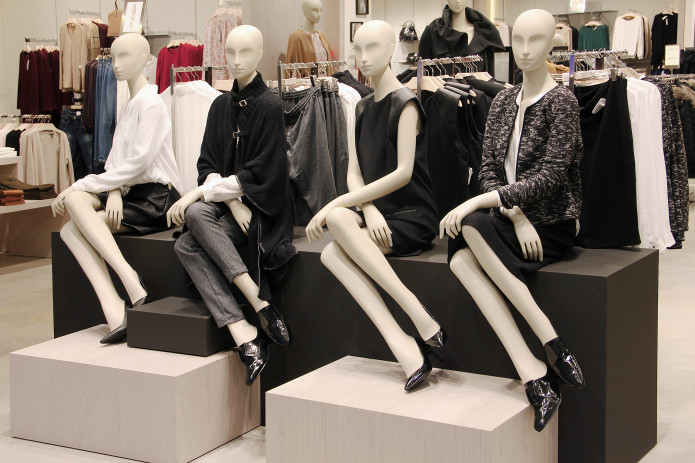
**Nestle Defends Class Action in the Central District of California with Successful Motion to Dismiss and Sets Valuable Precedent With California Transparency in Supply Chains Act Safe Harbor Defense** . . .
By: Brent E. Johnson
The California Transparency in Supply Chains Act of 2010, requires retailers doing business in California to make specific disclosures on its website about efforts it makes to “eradicate slavery and human trafficking from its direct supply chain.” (Cal. Civ. Code § 1714.43). In our prior post on this topic we noted the Transparency Act applies to large retailers (those with $100 million in worldwide sales). Id. And that the Transparency Act’s focus is on information – the retailer must disclose what efforts it takes to: verify the risks of human trafficking and slavery in its supply chain; audit its suppliers; certify its suppliers’ compliance with laws regarding slavery and human trafficking; maintain internal policies and procedures on the subject; and train its management on these policies and procedures. Id. Important to note, the Act does not require that a retailer actually do any of these things – the mandate is to inform the public what efforts are made. The point of the Transparency Act is consumer empowerment – to give consumers who are concerned about the topic a point of reference – and ultimately give the market the ability to reward or punish retailers who are (or are not) doing enough. Nestle USA was one of the first companies to be tested by the Plaintiffs’ bar on whether the Transparency Act created more than an obligation to inform the public about its efforts to eradicate the problem – and whether there is an implied legal obligation to inform the public about the actual occurrences or risk in its supply chain of human slavery or trafficking. See Barber v. Nestle USA, Inc., No. SACV1501364CJCAGRX, (C.D. Cal.). The case involved Nestle USA’s branded pet food which sources seafood from Thai fisheries. The court took judicial notice that it has been reported widely the Thai fishing industry is notorious for having widespread forced and other inhumane labor practices. Plaintiffs alleged that they would not have purchased Nestle USA’s products if they knew of that connection and therefore that the defendant had violated California’s CLRA (Cal. Civ. Code § 1750 et seq.); FAL (Cal. Bus. & Prof. Code § 17500 et seq.; and UCL (Cal. Bus. & Prof. Code § 17200 et seq.). However, Nestle USA cited to its compliance with the Transparency Act – to the fact that it had informed the public of its efforts – and therefore that it was squarely within a consumer law “safe harbor.” A “safe harbor” is the concept articulated by the California Supreme Court that a defendant cannot be liable under the UCL for unlawful conduct if it is doing something that “the Legislature has permitted . . . or considered a situation and concluded no action should lie.” Cel-Tech Comms., Inc. v. L.A. Cellular Tel. Co., 20 Cal. 4th 163, 182 (Cal. 1999.). The doctrine has been applied widely to California consumer laws. Alvarez v. Chevron Corp., 656 F.3d 925, 933–34 (9th Cir. 2011) (applying the safe harbor doctrine to CLRA claims); Pom Wonderful LLC v. Coca Cola Co., No. CV 08-06237 SJO(FMOx), 2013 WL 543361, at *5 (C.D. Cal. Apr. 16, 2013) (applying the safe harbor doctrine to FAL claims). Nestle USA argued that Plaintiffs could not make an end run around the legislature by making it liable for disclosures that were fully compliant with the Transparency Act. The district court agreed holding that Plaintiff may not “simply impose their own notions of the day as to what is fair or unfair” – that the “California Legislature considered the situation of regulating disclosure by companies with possible forced labor in their supply lines and determined that only the limited disclosure mandated by § 1714.43 is required.” Barber v. Nestle USA, Inc., No. SACV1501364CJCAGRX, 2015 WL 9309553, at *4 (C.D. Cal. Dec. 9, 2015). Accordingly, it granted Nestle USA’s motion to dismiss. Id.
This dismissal sets an important precedent for the defense bar: Costco has been sued in the Northern District of California under similar circumstances with respect to its sale of seafood sourced from Thailand. Sud. v. Costco Wholesale Corp., No. 3:15-cv-03783 (N.D. Cal). Costco’s Motion to Dismiss is currently pending. Chocolate manufacturers have faced similar lawsuits with respect to slave and child labor in the cocoa supply chain: Mars has been sued in the Central District of California (Wirth v. Mars, Inc., No. 8:15-cv-1470 (C.D. Cal September 10, 2015) and in the Northern District (Hodson v. Mars, Inc., No. 4:15-cv-04450-DMR (N.D. Cal. September 28, 2015). Hershey’s has also been sued in the Northern District of California (Dana v. The Hershey Company, No. 3:15-cv-04453 (N.D. Cal. September 28, 2015). Mars’ Motion to Dismiss has been filed in its cases and a decision is currently pending.


